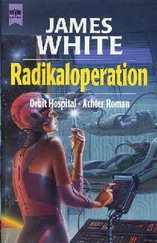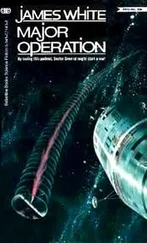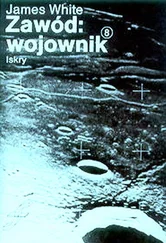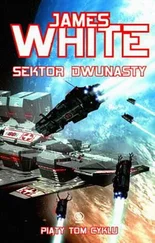On their way back Prilicla was walking rather than flying beside Murchison. He saw it looking at his trembling limbs and felt its concern for the empathic pain he was feeling.
“Oh, well,” it said, knowing that he knew its feelings and trying to move to a less painful subject, “at least we gave our bored, convalescent patients a little real-life drama to amuse them.”
Before he could reply, Fletcher’s voice sounded in their headsets.
“There’ll be no shortage of drama around here,” it said, in the calm voice it had been trained to use while reporting calamitous events. “The six spider vessels nearing the other side of the island will join the three already there within the next hour. An additional six units are hull-up on the horizon on this side, and there are two other three-unit fleets, which according to our wind-strength calculations, won’t reach us until early tomorrow. All the indications are that the spiders are mounting a combined land, sea, and air assault. Your patients will have ringside seats.”
Neither the Earth-human DGDGs nor the Trolanni CHLIs were feeling worried by the impending attack because both species were star-travelers and were aware of the effectiveness of the meteorite shield. Terragars officers were feeling concern over the fact that the ongoing first contact with the spiders was not going well, but they were not deeply concerned because the ultimate responsibility for its mismanagement was not theirs and in the meantime they were willing to enjoy the spectacle. The feelings of Keet and Jasam were more selfish, radiating as they did intense relief that they were both alive and likely to remain that way, as well as general confusion at the strange things that were happening to and around them. Murchison, Danalta, and Naydrad had their feelings under control. It was the captain, whose voice was being relayed from Rhabwars control deck, who vocalized its worries by telling them not to worry.
“There is no immediate cause for concern,” it said. “Our power pile will enable the life support and ship’s thrusters to be operated indefinitely; but not so, the tractor-beam units and meteorite protection. In a planetary atmosphere they drain five times the power required for operation in a vacuum, and this ship was designed for speedy casualty retrieval rather than a duration flight.”
“You mean,” said Naydrad with an impatient ruffling of its fur, “that nobody expected us to be fighting an interspecies war with an ambulance ship. How long have we got?”
“Forty-six hours of full shield deployment,” it replied, “after which we’ll have to lift out of here, or remain unprotected until someone rescues us. I shall explain the tactical situation as it unfolds…”
But they didn’t need the other’s continuous evaluation and commentary because they could see everything that was happening for themselves.
The three ships from the other side of the island came into sight, hugging the shoreline and beaching themselves in the spaces between the first three. All six vessels dropped their landing ramps and opened the upper sail-shields where, Prilicla knew from previous observations, the gliders would be launched. There was no other visible activity and very little intership conversation. This was probably due, the captain thought, to all of the battle orders having already being issued so that they were awaiting only the signal to begin. The nearest six-unit fleet, all its sail-shields deployed to catch the wind off the sea, was approaching fast in line-abreast formation. Just above the horizon beyond them, at about fifty degrees lateral separation, two more highflying gliders were performing signal aerobatics for three more fleets which totaled fifteen units. They were still below the horizon and would not, the captain estimated, arrive until early the next day.
The six latest arrivals found gaps in which to come aground and they, too, closed their sail-shields apart from a few ventilation openings, and lowered their landing ramps. The beach was becoming really crowded, Prilicla thought, so that Terragar had disappeared from sight behind a line of giant, greenish-brown molluscs. There came the sound of the senior spiders on each ship using their speaking trumpets, followed by a lengthening silence.
“I don’t think we’ll see any action today,” said the captain.
“Plainly they are waiting for the other fifteen ships to arrive before attacking us — Oops, I stand corrected.”
Spiders were crawling down the landing ramps of every ship to begin forming into lines on the dry sand above the water’s edge. All of them were armed with crossbows and, in addition, eight of them carried between them what looked like two heavy battering rams with sharply tapering points. Simultaneously gliders were being launched on the seaward side, two from each ship.
They climbed slowly and heavily into the wind off the sea, and only when they made slow, banking turns towards the beach to take advantage of the thermals rising from the hot sand was it possible to see that the gliders carried passengers as well as pilots and that both were armed with crossbows.
The aircraft continued to gain height slowly and steadily while the ground forces deployed three-deep into a crescent formation, with the battering rams placed front and center, before advancing on the med station and watching patients.
The captain’s voice returned, giving orders rather than a commentary.
“Dodds,” it said briskly, “shoot a couple of flares inland and drag them along the perimeter. The vegetation has dried out since last time so be careful not to start a major fire, just give me a line of burning bushes and smoke. There’s no sign of an attack developing from that quarter but I want to put them off the idea in case they burn themselves.”
“Sir,” said Haslam, “shall I whip up another sandstorm on the beach?”
“Negative,” it replied, “there’s no point in wasting the power. Last time we didn’t want them to hit the meteorite shield, but they found out about it when they were shooting at Murchison and Prilicla. But have your tractors ready just in case. Dr. Prilicla.”
“Yes, friend Fletcher,” he said.
“There is no risk to your patients out there,” it went on, “because there is no way that the spiders can get through our shield, but I don’t know what they might do to themselves while they’re trying. It could be visually unpleasant, so I advise moving them indoors before…”
The captain’s next few words were drowned by a wail of protest and accompanying emotional radiation.
“Thank you for the suggestion, friend Fletcher,” said Prilicla, “but I am receiving strong vocal and emotional objections from my patients and staff, all of whom would prefer to see the action at first hand.”
“Bloodthirsty savages,” said the captain dryly, “and I’m not talking about the spiders.”
There were twelve ships drawn up along the beach, each one carrying two gliders and a crew complement of anything up to two hundred. The bright yellow sand in front of the station was disappearing under the brownish-green bodies of overtwo thousand advancing spiders and, if it hadn’t been for the knowledge that the meteorite shield made them invulnerable, it would have been a terrifying sight as the spiders halted about fifty meters from the shield and readied their crossbows. Apart from the faint whisper of glider slipstreams as they circled and climbed above the station, there was utter silence. Plainly, all the necessary orders had already been given and they were awaiting only the signal to attack.
“This is stupid,” said Murchison from her position among the medical team grouped around and below him. “They aren’t going to get anywhere with this attack so why don’t they just forget it and go home? After all, we haven’t hurt them in anyway and we’re trying hard not to, but if this foolishness goes on, someone is sure to come to grief.”
Читать дальше












